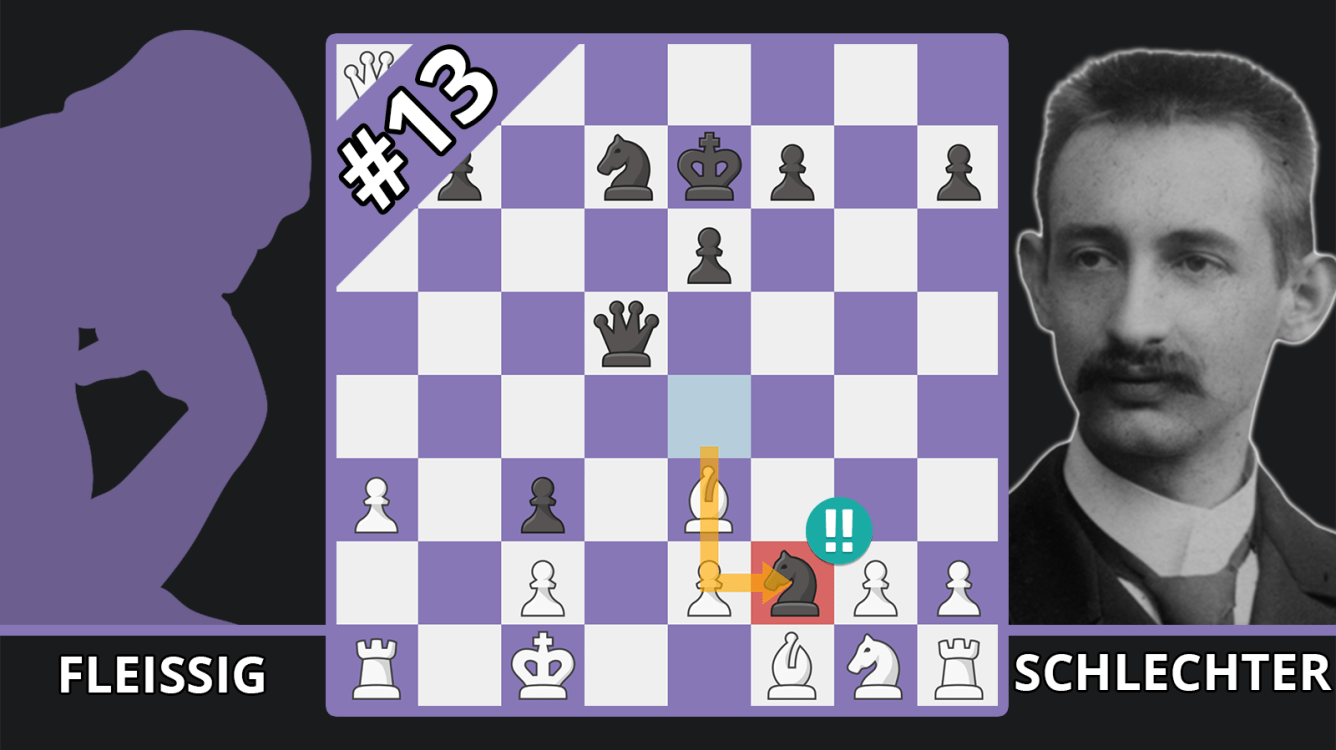
Schlechter Wins An Immortal vs. 1.b4 - Best of the pre-1900s - Fleissig vs. Schlechter, 1893
Carl Schlechter is one of the most under-appreciated chess masters to play the game. He may also have been one of the least ambitious.
Schlechter emerged on to the chess scene around 1893, when today's featured game was played, and he soon was scoring well in tournaments and matches. Schlechter was an artist. It seemed he played for the love of the game and less for victory in individual games, matches, and tournaments. As a result, Schlechter acquired a reputation as a drawing master which may have been fair. He was incredibly hard to beat (losing only twice in a run of 100 games), but he was amicable and often willing to lay down arms early, a tendency that prevented higher placings at times, but this did not mean he did not play vividly or enthusiastically.
Schlechter's style was hard to pin down. He could play both positionally, as in Schlechter vs. John, or for a quite magnificent finish, as in Schlechter vs. Meitner and as against Fleissig below. I think the binding characteristic was beauty. Schlechter's best games pleased his own sense of aesthetics. You can see that against Fleissig already in 1893, at the very birth of Schlechter's career. This game is known as Schlechter's Immortal and is widely cherished, but Schlechter could have won more easily and cleanly in many ways. These would have been rather unmemorable paths to victory, and the game would have been immediately forgotten. Instead, Schlechter chose to sacrifice nearly all of his pieces, offering his opponent chances to defend, but ultimately achieving a majestic finale that stands the test of time.
Schlechter's greatest rejection of practicality in favor of artistry would come in the final game of his world championship match with Lasker in 1910 when he needed only a draw to win the match. He played with vigor, seeming to dare Lasker to beat him. Some have contended that Schlechter's play only makes sense if the rules stipulated that he needed to win by two, but I believe that Schlechter wanted to play a memorable game and felt a sense of honor called for him to take up the fight. Before the match, Lasker had said that Schlechter had "so little of the devil about him that he could not be moved to take anything coveted by somebody else." Likely this is true and is why Schlechter did not win the match or more tournaments and games. Victory sometimes requires a determination to defeat your opponent, to crush their ego as Bobby Fischer would later say. Schlechter had none of that in him.
Top 10 Games from before 1900
- ???
- ???
- ???
- ???
- ???
- ???
- ???
- ???
- ???
- ???
- ???
- ???
- #13: Fleissig vs. Schlecter, 1893
- #14: Konyovits vs. Charousek, 1893
- #15: Weiss vs. Pollock, 1889
- See also: Top 10 of the 1900s, Top 10 of the 1910s, Top 10 of the 1920s, Top 10 of the 1930s, Top 10 of the 1940s, Top 10 of the 1950s, Top 10 of the 1960s, Top 10 of the 1970s, Top 10 of the 1980s, Top 10 of the 1990s, Top 10 of the 2000s, and Top 10 of the 2010s
If you like the content and want to support it, subscribe and follow on YouTube and Twitch!


